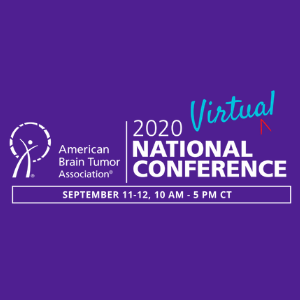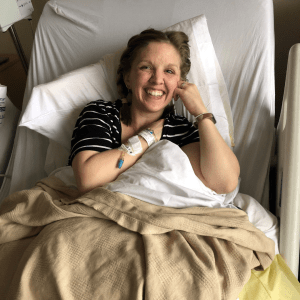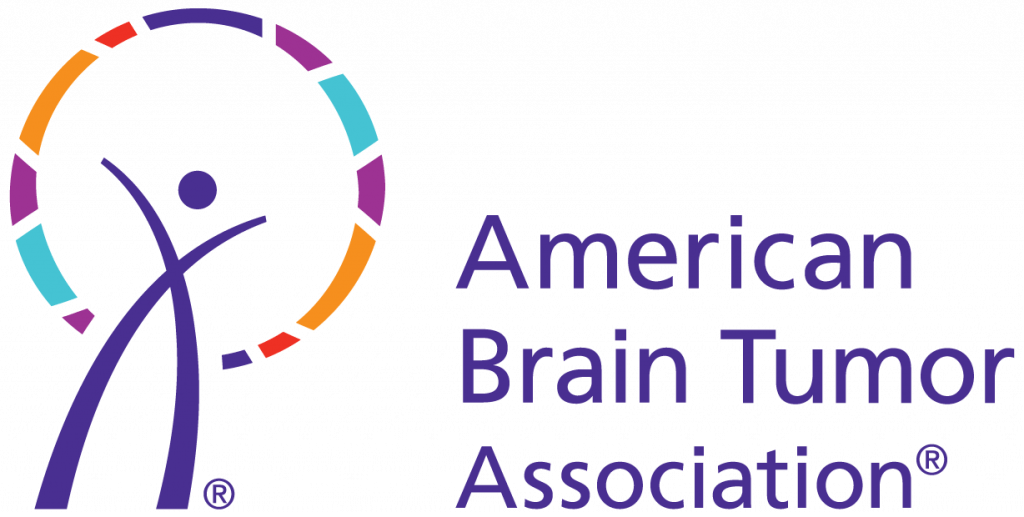Sponsored Content:
This content is not an endorsement from the ABTA.
Sponsored by Novocure®
Optune® Ambassador Program – Patient Story – Lynn
Although Lynn’s journey with glioblastoma (GBM) has not been easy, nor has her life gone unchanged, she has come to appreciate the importance of what she has—the support of her amazing family and friends, the strength of her faith, and the beauty of the world around her. In honor of Brain Tumor Awareness Month, Lynn wants to share her story with you.
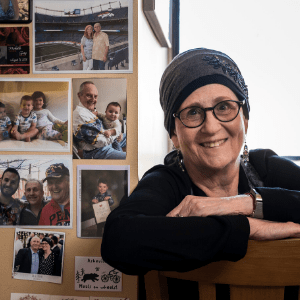
Discovering Love and Support Through My Brain Tumor Journey
Not everyone knows how much they’re loved. For me, being diagnosed with GBM has allowed me to see for myself just how much love and support I have around me. I’d like to thank Novocure for sponsoring my story so that I can share this journey of love and support with others.
One Friday morning, as I was stepping out of the shower, I felt a sharp pain on the right side of my head. I just didn’t feel well. I decided to go back to bed to sleep it off. After a few hours, I got up. I felt fine, so I put in a full day’s work at my computer.
Over the next month, I had constant headaches. I went to a few doctors trying to figure out what was happening, and it was my ENT who suggested that I schedule an MRI. The MRI showed a mass, so I made an appointment with a surgeon for a week later. Unfortunately, I had a small seizure a few days later in the middle of the night and was immediately taken to a hospital where
I had surgery. While I was in recovery, the surgeon came out and told my husband, our children, and a group of friends who were there that I had a glioblastoma (GBM). He said he removed all of the tumor. But as so often is the case with GBM, we never know if it is all removed.
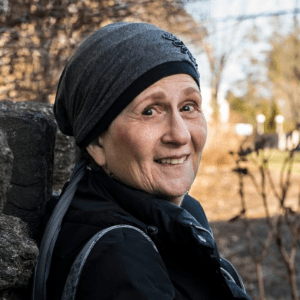 After my surgery, I started a course of chemo and radiation therapy. Shortly after, I learned about a treatment called Optune®. My doctor explained how Optune uses alternating electric fields (TTFields), which may slow or stop cancer cells from dividing. I didn’t really have to think about it too hard. I wanted to do whatever I could to potentially slow the regrowth of GBM, so I decided this was what I had to do.
After my surgery, I started a course of chemo and radiation therapy. Shortly after, I learned about a treatment called Optune®. My doctor explained how Optune uses alternating electric fields (TTFields), which may slow or stop cancer cells from dividing. I didn’t really have to think about it too hard. I wanted to do whatever I could to potentially slow the regrowth of GBM, so I decided this was what I had to do.
However, it did mean that I would have to say goodbye to my very long, thick red hair—one of the things I took pride in. I wanted to do something special, so I invited some of my closest girlfriends to support me and witness the event. The female rabbi from my synagogue came and gave me a blessing for healing and asked all of my friends to place their hands on me and tell me what they wished for me. It was a lovely ceremony after which I donated my hair in the hope that someone else could use it for a wig.
Even though I loved my hair, I’m almost relieved. I don’t have to worry about all the upkeep that was required. Well, not totally. My hair keeps trying to come back. My husband has to shave my head every time we change the arrays. We use the razor that nCompass™, Novocure’s support program, sent us.
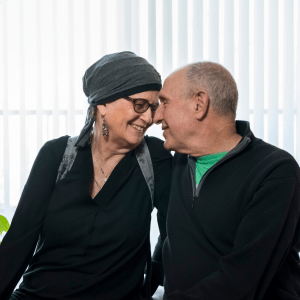 When I started using Optune, a Device Support Specialist (DSS) from nCompass came out and showed my husband and me how to set it up. She comes out regularly to help with any issues we have, and she tells me what my percent of time on Optune has been. I’m always between 92 and 95 percent. My oncologist told me I needed to maintain at least 75 percent or 18 hours a day, but I want to make sure I’m above that. Part of how I can keep my percentage so high is that I use it while I’m sleeping, and I plan my activities that I’d rather do without Optune for times when I won’t be using it anyway.
When I started using Optune, a Device Support Specialist (DSS) from nCompass came out and showed my husband and me how to set it up. She comes out regularly to help with any issues we have, and she tells me what my percent of time on Optune has been. I’m always between 92 and 95 percent. My oncologist told me I needed to maintain at least 75 percent or 18 hours a day, but I want to make sure I’m above that. Part of how I can keep my percentage so high is that I use it while I’m sleeping, and I plan my activities that I’d rather do without Optune for times when I won’t be using it anyway.
When I started using Optune, I noticed some tenderness on my scalp. I pointed out the places that hurt, and my husband developed a system for arranging the arrays to keep my scalp from hurting. Another thing I noticed when I started using Optune was that I would hear the alarm when I went out for walks if it was sunny and warm. I wanted to be able to walk outside, so I decided to invest in a hat with SPF 50 on top that would shield Optune and my head from the sun. Since I started wearing the hat during my walks, I haven’t heard the alarm.
I made a few changes in my life since my diagnosis. While I’ve continued to do many of my regular activities, like driving, dancing, playing mahjong, going to the theater, and traveling, some things have changed. I stopped working, but have gotten involved in fundraising for brain tumor research by participating in 5K walk and run events.
Since being diagnosed with GBM, I’ve become more in touch with my spirituality. I joined a meditation group. I try to stay positive. I’m also being more assertive about things. I’m always polite, but I make sure that I’m able to get what I need. Part of that is me planning ahead and communicating what I need, like when I travel. It just takes a little planning and a willingness to advocate for yourself.
I still see my brilliant oncologist regularly so that he can monitor my GBM. I have MRIs done every six to eight weeks. I also see a radiation oncologist every six months. All of my doctors work at the same university hospital, so they are constantly communicating. And they communicate with me.
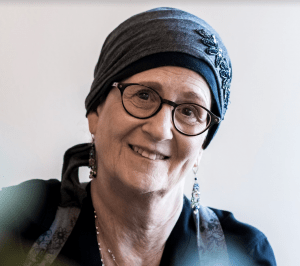 I am still overwhelmed and unimaginably appreciative of all of my friends and family who have stepped up and are sending me strength. My incredibly devoted, hard-working, husband of over [48] years is with me for the long haul. I can’t ask for a more supportive family and groups of friends…I consider myself lucky. You never know how many people you have touched in your life until they start touching you back.
I am still overwhelmed and unimaginably appreciative of all of my friends and family who have stepped up and are sending me strength. My incredibly devoted, hard-working, husband of over [48] years is with me for the long haul. I can’t ask for a more supportive family and groups of friends…I consider myself lucky. You never know how many people you have touched in your life until they start touching you back.
What is Optune® approved to treat?
Optune is a wearable, portable, FDA-approved device indicated to treat a type of brain cancer called glioblastoma multiforme (GBM) in adult patients 22 years of age or older.
Newly diagnosed GBM
If you have newly diagnosed GBM, Optune is used together with a chemotherapy called temozolomide (TMZ) if:
- Your cancer is confirmed by your healthcare professional AND
- You have had surgery to remove as much of the tumor as possible
Recurrent GBM
If your tumor has come back, Optune can be used alone as an alternative to standard medical therapy if:
- You have tried surgery and radiation and they did not work or are no longer working AND
- You have tried chemotherapy and your GBM has been confirmed by your healthcare professional
Who should not use Optune?
Optune is not for everyone. Talk to your doctor if you have:
- An implanted medical device (programmable shunt), skull defect (missing bone with no replacement), or bullet Optune has not been tested in people with implanted electronic devices, which may cause the devices not to work properly, and Optune has not been tested in people with skull defects or bullet fragments, which may cause Optune not to work properly
- A known sensitivity to conductive hydrogels (the gel on the arrays placed on the scalp like the ones used on EKGs). When Optune comes into contact with the skin, it may cause more redness and itching or may rarely cause a life-threatening allergic reaction
Do not use Optune if you are pregnant or are planning to become pregnant. It is not known if Optune is safe or effective during pregnancy.
What should I know before using Optune?
Optune should only be used after receiving training from qualified personnel, such as your doctor, a nurse, or other medical staff who have completed a training course given by Novocure®, the maker of Optune.
- Do not use any parts that did not come with the Optune Treatment Kit sent to you by Novocure or given to you by your doctor
- Do not get the device or transducer arrays wet
If you have an underlying serious skin condition on the scalp, discuss with your doctor whether this may prevent or temporarily interfere with Optune treatment
What are the possible side effects of Optune?
Most common side effects of Optune when used together with chemotherapy (temozolomide, or TMZ) were low blood platelet count, nausea, constipation, vomiting, tiredness, scalp irritation from the device, headache, seizure, and depression. The most common side effects when using Optune alone were scalp irritation (redness and itchiness) and headache. Other side effects were malaise, muscle twitching, fall and skin ulcers. Talk to your doctor if you have any of these side effects or questions.
Please visit Optune.com/Safety for the Optune Instructions For Use (IFU) for complete information regarding the device’s indications, contraindications, warnings, and precautions.


